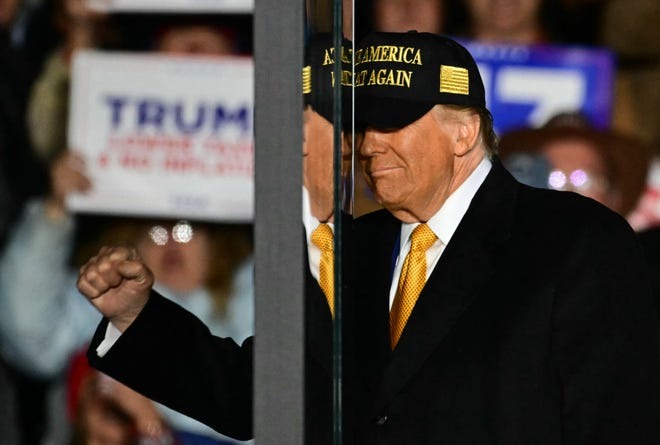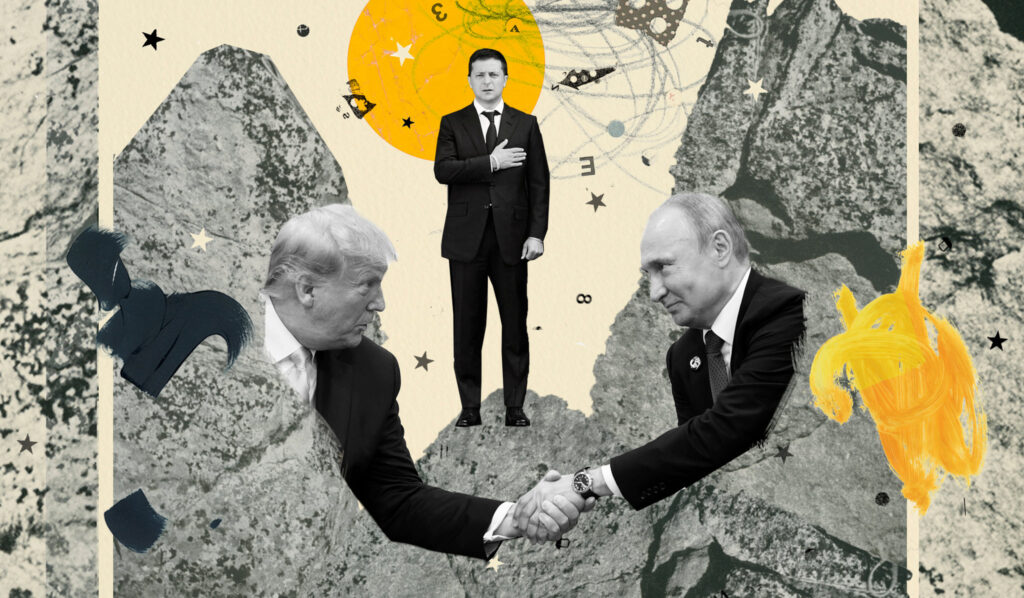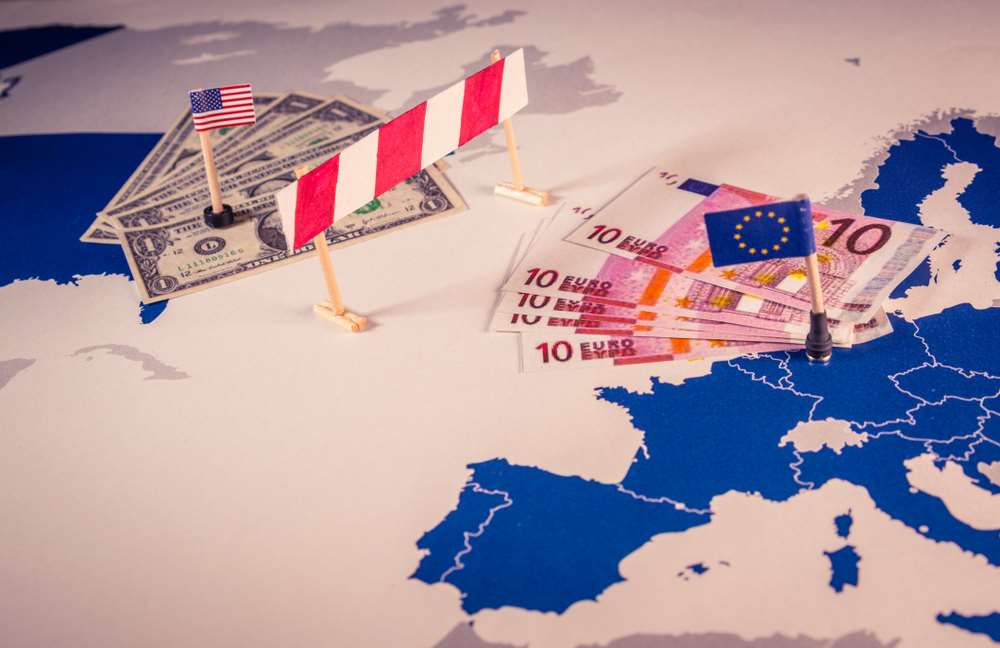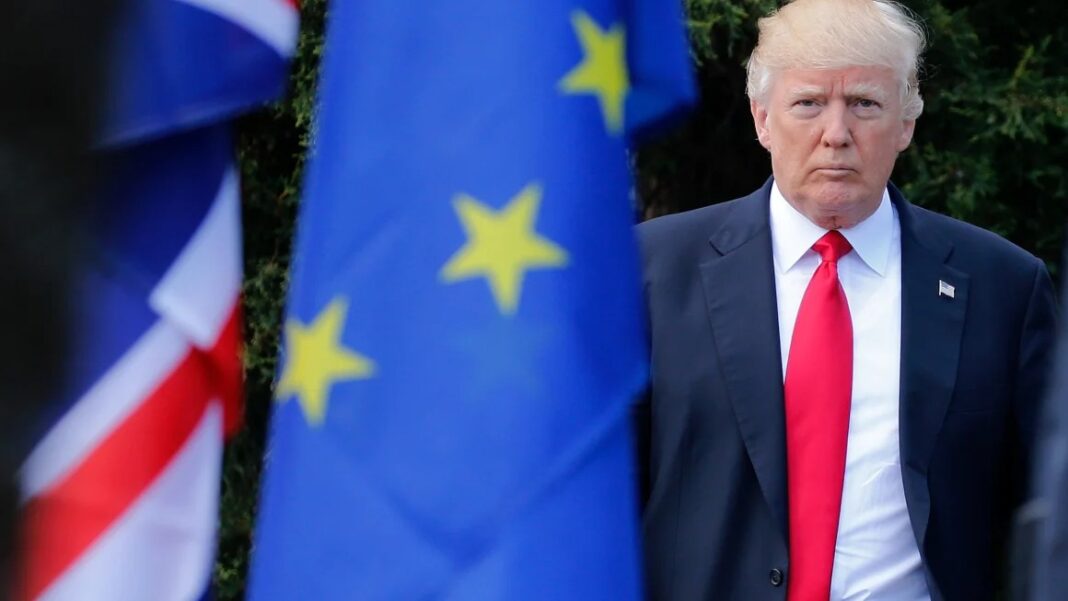Donald Trump has once again become the President of the United States. This outcome may have been somewhat unexpected, despite a close race until the last moment. Although his opponent’s chances seemed stronger, predictions proved inaccurate, and Trump won the so-called swing states, becoming President once again.
Congratulations poured in from all sides even before the official results.
The U.S. is a large, stable country with established principles and approaches where situations don’t change dramatically. Yet, Trump’s personality, statements, and outlook have fueled expectations of an unpredictable future, raising concerns about what his presidency might mean for Europe.
A Complex Geopolitical Context
Europe finds itself in a challenging situation: it is jointly supporting Ukraine with the U.S. in its resistance against Russia, seeking stability in the Middle East, and dealing with economic difficulties exacerbated by the pandemic and the Russia-Ukraine war. Trump’s potential to change U.S. approaches adds uncertainty. Europeans worry: What will Trump change, and what might remain the same? How much will he be able to accomplish, and what might be beyond his control?
The unpredictable Trump and Europe—will U.S.-Europe relations change, or is this just a storm in a teacup? Opinions and forecasts vary widely.

Man of Words or Deeds?
In response to these questions, Fortuna spoke with Georgian experts to explore their perspectives.
Irakli Melashvili, Political Analyst
“There are myths we all seem wrapped up in. During Trump’s presidency, Ukraine received the largest military aid ever. Ukraine’s army likely wouldn’t have withstood Russia’s first blow without Trump-era aid. I don’t think Trump’s return will be catastrophic for Ukraine. In the U.S., it’s difficult to make drastic changes on matters that involve state interests. The doctrine is clear, shaped over decades, and cannot be easily changed by one person. Presidents certainly have influence, but they operate within certain boundaries. I don’t foresee sharp changes.”
Ramaz Sakvarelidze, Political Scientist
“We tend to believe that such a vast country operates under a system that prevails. But it’s worth recalling that Bush Jr.’s strategy was to advance with velvet revolutions, even up to Afghanistan, with Bin Laden as a target. The U.S. indeed supported revolutions in places like Georgia and Ukraine. When it became clear that these revolutions were not justified continent-wide, it was discovered that Russia was placing its figures in power while the U.S. was staging revolutions. But this project was driven by one man—the President—indicating that the President holds certain power. I doubt Trump will take drastic actions. If he were going to act sharply, he would have done so in his first term. But he didn’t. Trump is more of a man of noise than of action.”
Buka Petriashvili, Political Commentator
“Trump’s policy will likely lean toward isolationism, focusing more on domestic issues. He is expected to prioritize migration issues and has stated that he has serious plans in education. He intends to sign key decisions on his first day in the Oval Office. In short, his plans are largely domestic. What concerns us and Europeans is the ongoing war in Ukraine. We remember Trump’s statements about making calls and ending the war in a day. His motto was not to start wars but to end them. Volodymyr Zelensky hopes that when Trump assembles a new team and delves deeply into the issue, he will realize that now is not the time to end support for Ukraine.”

Reduction of Aid and Rising Tariffs
Europe’s main concerns are twofold: military assistance and economic issues, particularly the rise in tariffs. What consequences might these decisions bring. https://www.euronews.com/business/2024/11/04/how-much-could-trumps-tariffs-damage-europes-economy
Concern One: NATO
European leaders are deeply concerned about the U.S.’s commitment to NATO under joint defense agreements. Trump demanded that European allies increase their defense spending to 2% of GDP, warning that he would reduce U.S. commitments if they did not meet this threshold.
Goldman Sachs economists caution that Trump’s foreign policy could compel Europe to increase military spending. Trump has stated he would halt military aid to Ukraine, leaving Europe responsible for filling the gap.
Since the U.S. annually spends 40 billion euros (around 0.25% of the EU’s GDP) supporting Ukraine, European governments may feel forced to increase their defense budgets.
Concern Two: Economy
Another major issue for Europe is economic cooperation. Trump has repeatedly criticized Germany, the EU’s primary economy, for its dependence on Russian gas, and his relationship with then-German Chancellor Angela Merkel was strained.
There is concern that Trump might deteriorate trade relations with the EU, potentially raising tariffs on European goods from 10% to 20%. Such an increase would be a heavy blow to Europe’s economy.
Higher tariffs could impact a broad range of European exports, from steel and automobiles to cheese and wine, making these products less competitive in the U.S. market. Even if tariffs are not directly aimed at European goods, European companies could suffer if the U.S. imposes sanctions on products incorporating Chinese technology or pressures Europe to decouple from China.
China is the EU’s second-largest trading partner after the United States. Some experts believe that U.S. attempts to slow China’s economic and technological progress could adversely affect Europe’s economy.
Potential Repercussions for Europe’s Trade-Dependent Economy
Trump’s tariffs could be a severe blow to Europe’s trade-reliant economy. Comprehensive import tariffs could affect industries such as automotive manufacturing and chemicals, which depend significantly on exports to the U.S.
According to European Commission data, the EU exported goods worth 502.3 billion euros to the U.S. in 2023, accounting for one-fifth of non-European exports.
Leading European exports to the U.S. include vehicles and transportation equipment (207.6 billion euros), chemicals (137.4 billion euros), and other industrial goods (103.7 billion euros), comprising nearly 90% of the bloc’s transatlantic exports.
Considering Europe’s current economic challenges, European countries may be compelled to strengthen their presence in Southeast Asian and Middle Eastern markets and seek new economic support points. Furthermore, some experts speculate that if the Ukraine conflict becomes stagnant, certain EU countries may explore renewed cooperation with Russia, potentially easing sanctions.

Real or Exaggerated Concern?
Some analysts argue that the impact may be less severe than many anticipate.
A recent London School of Economics report estimates that if Trump enacts his policies, the Eurozone will experience only a modest 0.11% GDP decline.”
Trump’s victory will accelerate structural shifts that present serious challenges for Europe, including increased protectionism, reduced export opportunities to China and the U.S., and a need for greater defense spending amid tight financial conditions,” writes Andrew Kenningham, Chief Economist for Europe at Capital Economics. He anticipates that the Eurozone’s GDP could shrink by less than 0.5%.
However, he warns that the damage could be far worse if it leads to a transatlantic or trade war between the EU and China.
Transatlantic Tensions: Europe’s Prospects Alone
Just before the election, The Washington Post published an article titled “How Europe is Preparing for Trump’s Possible Second Term.” The authors spoke with diplomats, politicians, and experts from five EU countries. They concluded, “Washington’s closest allies in Europe are preparing for a potential rift in transatlantic relations if the Republican returns to the White House.” https://www.washingtonpost.com/world/2024/11/02/trump-europe-trade-war-nato-ukraine/Currently, no European leader rivals Trump in influence. French President Emmanuel Macron is politically weakened, having lost his ruling majority. German Chancellor Olaf Scholz faces internal divisions and anticipates a right-wing resurgence. British Prime Minister Keir Starmer’s approval rating hit record lows in three months.European countries have increased military spending, and officials made aid packages a routine before the November elections. Discussions on establishing a European army have also intensified.European leaders recognize that any loss of U.S. defense support would significantly blow European security. The conflict in Ukraine has demonstrated how difficult it would be for Europe to stand alone and underscored the high stakes involved.
Photos:
https://edition.cnn.com/2018/03/03/politics/donald-trump-european-union-remarks/index.html
https://www.boell.de/en/2017/11/30/transatlantic-relations-thee-air-freedom
https://www.nytimes.com/2019/10/08/opinion/ukraine-zelensky.html

